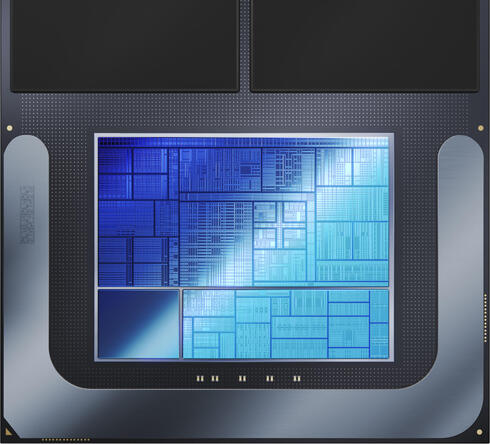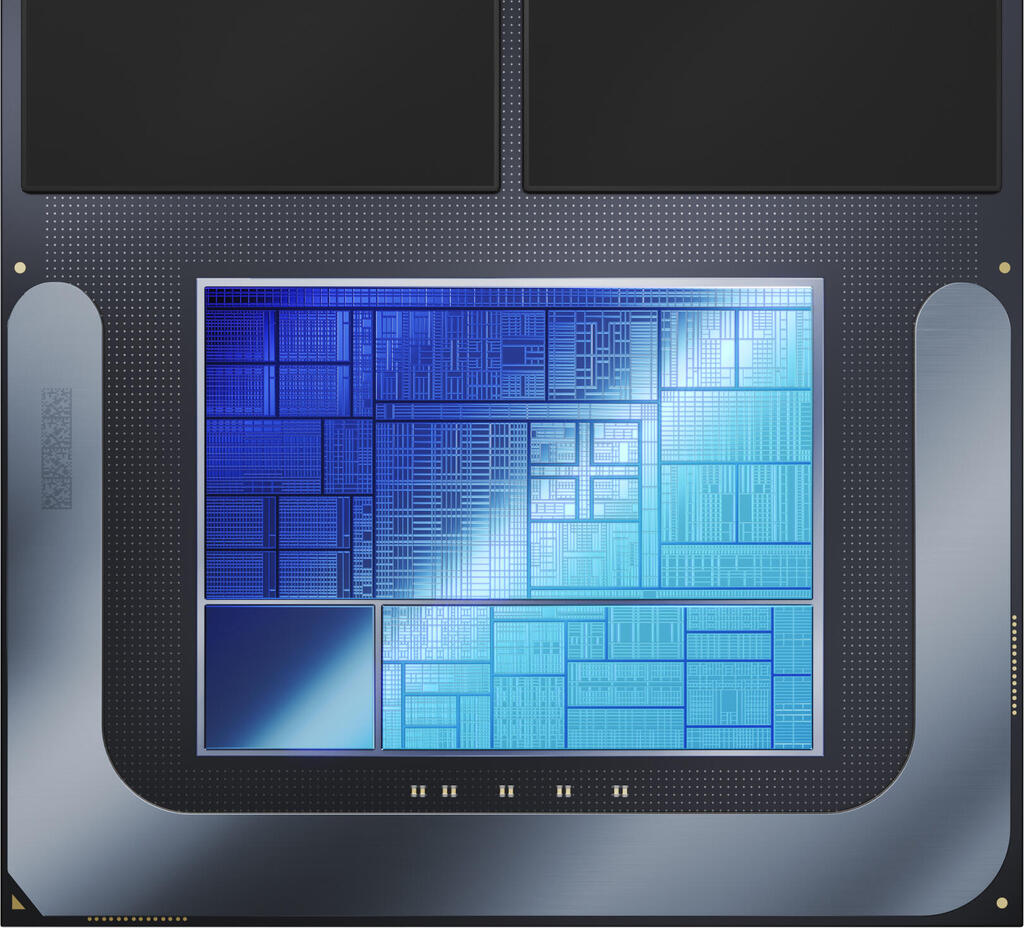
Intel pins AI comeback hopes on Israel-developed Lunar Lake chip
"Lunar Lake is more efficient in artificial intelligence performance compared to what most of the competitors have today," Arik Gihon, the architect of Lunar Lake at Intel, told Calcalist. "It's able to perform more operations per second than any other processor (for laptops) today, including the Qualcomm processor. And it's completely Israeli."
When Microsoft unveiled Copilot+ two weeks ago, new AI-focused portable computers produced by it and in partnership with other companies, the absence of one company, a close partner of the software giant, stood out: Intel. For decades, the two companies worked so closely in the personal computer market that Windows computers with Intel processors earned the nickname Wintel. But when Microsoft presented the vision for laptops that would integrate generative artificial intelligence (GenAI) capabilities in a deep way and bring it to wide audiences, it chose to do it with processors made by Qualcomm. Intel, unusually, remained on the bench.
But today Intel is unveiling Lunar Lake, new processors for personal and mobile computers, which it hopes will bring it off the bench and back into the heart of the field, and make it clear to everyone: there is no way that Intel is missing the AI revolution like it missed the mobile revolution. "Lunar Lake is more efficient in artificial intelligence performance compared to what most of the competitors have today," Arik Gihon, the architect of Lunar Lake at Intel, told Calcalist. "It's capable of performing more operations per second than any other processor (for laptops) today, including the Qualcomm processor that Microsoft introduced."
And, the company's R&D center in Israel played a significant role in all of this. "The processor is an Israeli processor. Its concept, its definitions, planning and development - everything was done by Israeli engineers and architects. Most of the construction and integration of the processor was also carried out in the development centers in Haifa and Petah Tikva. This emphasizes the strategic importance of the Israeli development centers for Intel. We are no longer just a bolt in the company like other centers, but the cutting edge of Intel," said Ori Lempel, chief engineer in Intel's performance cores group.
According to Intel, the Lunar Lake processor has improved performance by up to 50% compared to the previous generation, and has the ability to perform 120 trillion operations per second (TOPS), while consuming 80% less energy. "The processor is designed for the market of thin, small and efficient laptops that provide improved performance compared to the previous generation at low power," Gihon said. "What is special about it is that it makes a bigger leap compared to the previous generation and compared to previous processors, in all characteristics: the cores are more powerful and efficient; a very powerful graphics processor with a calculation capacity of 67 TOPS, which improves performance by more than 50% compared to the previous generation; and very powerful AI capabilities. There is a neural network accelerator (NPU), which performs 48 TOPS with the best energy efficiency of its kind. All this together provides a powerful, efficient processor for the benefit of artificial intelligence. There are many capabilities that the software world can get out of it."
Gihon added that Lunar Lake is designed to compete directly with Qualcomm's Snapdragon X processors, which form the basis of Copilot+ computers, and Apple's new M3 processors. "It's a better processor than them and competes very well in the market," he said. "When we developed Lunar Lake, the goal was to extend battery life, to give the feeling that the computer responds quickly and well, but at the same time is able to run applications with a large computational load. It can provide performance similar to that of the previous generation with half the energy consumption, or double the performance with the same consumption. Everyday use will improve noticeably."
Another major goal of Intel was to make the world of artificial intelligence accessible to the PC. "We wanted to allow AI models that are similar to those that run in the cloud to run on the personal computer, so that personal information could be used; we wanted the capabilities of the personal assistant to improve, and that new uses could run optimally on the computer. The computer would be able to watch what you do, analyze and do new things which it did not do in the past, very efficiently and without harming the life of the battery. This will allow the ecosystem to flourish because when there is hardware, new uses and new capabilities are born." Computers with Lunar Lake processors are expected to hit the market towards the end of the year, from leading manufacturers including Asus, Lenovo, Dell, and HP.
The development of the processor was done almost entirely in Israel, where the last eight months of development were not only the most stressful but also particularly challenging due to the security situation in Israel. "We found ourselves at a certain point with 20% of the manpower recruited into the reserves," Lempel said. "We had to deal with the situation, and in the end we came out with the product on the market one quarter before our original commitment. Not only were we not late with the delivery, but we were even early. We did not allow for a second for Israel to be portrayed as not stable, that there is a risk here compared to projects in other parts of the world. Using the war as an excuse was not an option."
Gihon: "We received very good support from Intel Global. We continued to work almost as usual, even during rocket alarms, even at night, despite all the impossible conditions, with quite a few of our personnel in the reserves. There were groups that were less affected and helped others. There was commitment, and with that, we succeeded in doing more than we usually do, despite the difficulties. Intel Global supported, encouraged, and helped when needed."
A historic strategic mistake by Intel caused the company to miss the smartphone revolution. Now, the tremendous success of Nvidia and the choice of Microsoft to launch the new AI computers with Qualcomm (the company that beat Intel in mobile) raise the fear that Intel is going to miss this important revolution as well. And this time, it is not certain that it is a mistake that the company could recover from.
However, Gihon and Lempel believe that Intel not only did not miss the revolution, it is leading it. "In terms of the ability to run AI on the central processor, also known as CPU (as opposed to a graphics processor, GPU, where Nvidia leads), Intel is the leader in the market, also in the world of servers," Gihon said. "It is true that Nvidia dominates the market of external accelerators that are added to server farms to train AI models. But in the ability to perform inference (inference, actual use of existing models to form various actions, etc.), which requires a fast response time and multiple calculations, Intel leads. It's not like Intel missed the train in the whole AI world. It's hard to say that."
Lempel added: "There is a famous saying by Andy Grove (former CEO of Intel) that only the paranoid survive. We should be paranoid to think every day that someone wants to steal our meal. We must offer better products, market contracts, be on time, and ensure that the market will prefer our products over those of the competitors. There were many good companies that fell because they rested on their laurels. Our job is to make sure that doesn't happen."
Gihon: "Competition is good for us. We have greater competition than before. We have both been at Intel for more than 20 years, and the competition in recent years has been in many aspects. Lunar Lake is an example of how it is good for us. We were more aggressive and went further. We saw what was happening, we wanted to rule without question, so we made aggressive moves."














